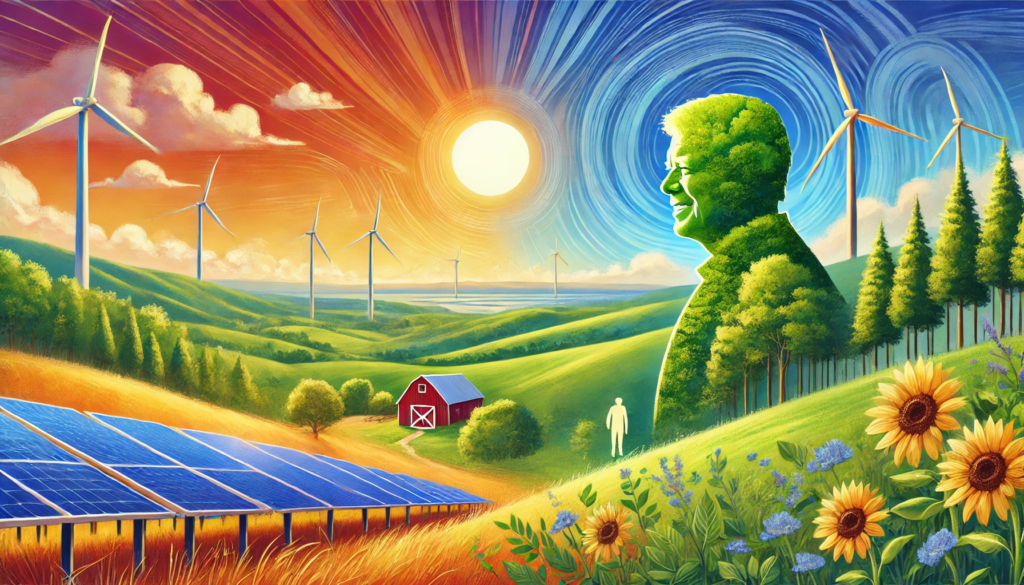EarthTalk®
From the Editors of E – The Environmental Magazine
Dear EarthTalk: What is Jimmy Carter’s environmental legacy? — B.N.., Athens, GA

Jimmy Carter, the 39th U.S. President, made a lasting impact on environmental policy. His robust initiatives to protect natural resources and advance clean energy established the foundation for environmental policy in subsequent decades. Despite obstacles, his efforts in land preservation, energy efficiency and climate activism still impact environmental policy in the present day.

One of Carter’s most significant actions, a symbolic one, was installing solar panels on the White House. And he signed the National Energy Act, which reduced U.S. dependence on foreign oil and encouraged the use of alternative energy sources. “The energy crisis is real. It is worldwide. It is a clear and present danger…” Carter stated during his presidency, emphasizing the urgency of moving to sustainable energy. Carter also created the Department of Energy in 1977 to consolidate management and energy policy. The move displayed his foresight in addressing energy security and climate issues. This laid out the groundwork for the renewable energy sector’s growth in subsequent decades.
Carter’s dedication to conservation was equally effective. His administration included multiple wildlife reserves, national parks and public lands in the federal portfolio. Specifically, he enacted the Alaska National Interest Lands Conservation Act in 1980, which protected over 100 million acres of Alaska wilderness, enlarged the National Park System and protected priceless ecosystems for future generations. Reinforcing existing environmental codification was another order for Carter. He reinforced the Clean Air and Clean Water Acts, and in 1980, signed the Superfund law to clean up hazardous waste sites.
After leaving office, Carter continued to work for the environment. Through the Carter Center, he promoted sustainable farming and clean energy. His work with Habitat for Humanity promoted affordable and sustainable housing as a foundation of environmental and social justice. “Habitat has successfully removed the stigma of charity by substituting it with a sense of partnership,” Carter voiced. Carter’s environmental vision faced difficulties. Economic struggles limited the scope of some initiatives. Additionally, President Reagan removed the White House solar panels, indicating a retreat from Carter’s vision. But his cutting-edge advocacy inspired subsequent efforts on climate change and conservation.
Jimmy Carter’s environmental legacy serves as a reminder that fearlessness and long-term vision are important in addressing today’s ecological challenges. His leadership continues to inspire. Ultimately, his efforts underscore the mutuality of protecting the environment, sustainable development, and social justice.
CONTACTS: The Carter Center, https://www.cartercenter.org; Jimmy Carter Presidential Library & Museum, https://www.jimmycarterlibrary.gov.
EarthTalk® is produced by Roddy Scheer & Doug Moss for the 501(c)3 nonprofit EarthTalk. See more at https://emagazine.com. To donate, visit https://earthtalk.org. Send questions to: question@earthtalk.org.
Viewers are encouraged to subscribe and join the conversation for more insightful commentary and to support progressive messages. Together, we can populate the internet with progressive messages that represent the true aspirations of most Americans.